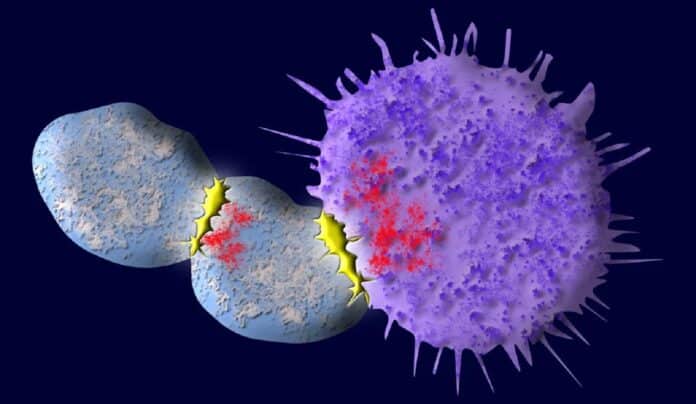Cell therapy, a promising approach to treating various diseases, involves harnessing the power of a patient’s immune cells to target and destroy specific harmful cells, such as cancerous ones. However, a significant challenge in cell therapy is the risk of “friendly fire,” where these immune cells inadvertently attack healthy tissues, leading to potentially severe side effects. In a breakthrough study, researchers have uncovered a novel approach to mitigate this issue and reduce the occurrence of friendly fire in cell therapy.
In CAR T-cell therapy, a promising form of immunotherapy, patient T cells are genetically modified to target and attack cancer cells more effectively. However, a significant issue arises as these engineered T cells start attacking other T cells due to remnants of cancer antigens, depleting the body of vital cancer-fighting cells and potentially leading to cancer recurrence.
A recent Yale at Yale university study has discovered a solution to this problem. By fusing a molecular tail onto the engineered T cells, researchers could prevent them from attacking each other, inhibiting their self-destructive tendencies. This breakthrough could enhance the safety and efficiency of CAR T-cell therapy and was published in the journal Nature Immunology.
In the study by co-first authors Xiaoyu Zhou and Hanbing Cao, the Yale team utilized CTLA-4 cytoplasmic tails (CCTs) to enhance engineered CAR T cells. CCTs are part of the CTLA-4 protein, which naturally regulates T cells and maintains immune system balance. By fusing these tails into CAR T cells, the researchers observed that the modified cells were less exhausted and showed improved longevity compared to CAR T cells without the tails. The engineered CAR T cells demonstrated reduced reactivity while more persistent in killing cancer cells.
The newfound approach to reducing friendly fire in cell therapy holds great promise for enhancing the safety and efficacy of this innovative treatment strategy. By fine-tuning the signaling pathways involved in immune responses, clinicians better control the resistant cell behavior and minimize collateral damage to healthy tissues. As further research and clinical trials are conducted, this novel approach may lead to significant advancements in cell therapy, paving the way for safer and more targeted treatments for various diseases.
This breakthrough could expand CAR T-cell therapy to treat solid tumors as well. Funding for the research was provided by the National Institutes of Health, the U.S. Department of Defense, and several foundations, and the study’s principal investigator, Sidi Chen, is affiliated with multiple prestigious Yale research centers.
The study’s groundbreaking findings shed light on a new way to tackle the challenge of friendly fire in cell therapy. By understanding the signaling pathways that govern immune cell behavior, researchers have unlocked a potential solution to enhance the precision and safety of cell-based treatments.
As cell therapy advances, this research could be a game-changer, revolutionizing how we harness the immune system’s power to combat diseases while sparing healthy tissues from unintended harm.
Journal Reference:
- Zhou, X., Cao, H., Fang, SY. et al. CTLA-4 tail fusion enhances CAR-T antitumor immunity. Nature Immunology. DOI: 10.1038/s41590-023-01571-5.
